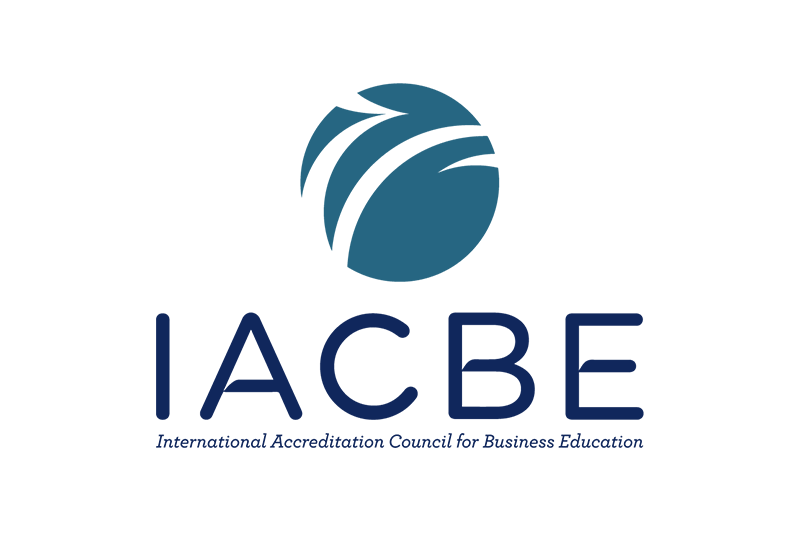
Master of Science Leadership Studies
4-week
COURSES
Start sooner and finish faster with our innovative course design.
Year-round
enrollment
Our admissions team reviews applications year-round.
240K+ Alumni Worldwide
Become a member of NU’s global community.
Program Overview
The mission of the Master of Science in Leadership Studies (MSLS) program is to prepare diverse learners to become effective, change-oriented leaders in an international society. The program uses distinctive and challenging curriculum that integrates theory with practice, personal success with service to others, and information technology with creativity, empathy, and democracy.
The Master of Science in Leadership Studies (MSLS) program prepares individuals from a wide variety of backgrounds and interests into change-oriented leaders. As every industry and profession needs effective and ethical leadership, employers are increasingly targeting candidates that possess the capacity to take initiative, build and cultivate strong teams, orchestrate conflict, and promote innovation to serve organizational purposes. Using a collaborative, integral and holistic approach, this degree builds the skill set to think critically and analytically, learn communication skills that serve a diverse population, and develop the ability to lead change in increasingly global/complex environments. Drawing from work/life experiences, students will learn to frame problems, use systems thinking and plan strategic interventions. Students will acquire knowledge, skills and abilities through experiential learning and critical analysis.

The Western Association of Schools and Colleges (WASC) accredits public and private schools, colleges, and universities in the U.S.

Course Details
Core Requirements
- 10 courses; 45 quarter units
Degree Requirements
- 12 courses; 54 quarter units
Introduction to the classic theories, frameworks and ethics of leadership practice. Students identify and assess their own leadership philosophy, then analyze the relationship between it and selected theories of leadership. Students evaluate ethical decision making processes and assess the potential impact of leadership strategies on organizations.
The formation and development of groups through effective leadership is the focus of this course. Team communication styles and roles within teams are examined. Strategies that foster creativity in groups are discussed. The impact of technology on teams and communication styles is evaluated. Students learn experientially about groups and teams and the impact of diverse ethical perspectives by participating in group activities and observing leadership in small groups.
Examination of emerging forms of leadership, influence and power, chaos and collaboration. The course will analyze multiple organizations within the private and public sectors, and will draw upon diverse perspectives, ethical considerations and applied approaches. Participate in experiential approaches to learning leadership skills which may include the classroom as a temporary organization to be examined in real time.
Course topics will focus on the dynamics of change, organizational redesign, and the essential skills necessary for leaders to initiate corporate and organizational transformations. Resistance and acceptance of change initiatives, including the impact of organizational culture will be examined. Students will strengthen their leadership skills and strategies in order to initiate and implement change through problem-solving experiences across a broad range of organizational contexts.
Integration of the knowledge, skills, and abilities required to design, conduct, and evaluate effective conflict resolution and negotiation practices. Course topics include interpersonal and intra-group conflict resolution; persuasion, problem solving techniques and decision-making in conflict resolution; overcoming bias, anger, and retaliation. Students will develop leadership and dialogue skills used to navigate conflict situations, and begin to detect conflicts as potential clues of organizational challenges.
Identify quality information, data and research that inform decision making and strategy. Students will gain skills in interpreting data and develop critical thinking around key issues. In order to aid in analysis, explore statistical models and emerging data trends. Topics will include data analytics, overview of statistical models, data collection methods and critical interpretation of information.
Students gain both knowledge and skills to consult to organizations on leadership issues and development, whether within the infrastructure or to an external client base. Through the use of assessment instruments, students gain both understanding of self as well as expertise in administering tools with clients. Assessments for leadership also include personality, team performance and conflict styles. In order to work effectively with clients, skills for facilitating and training will be included.
Adult development is intrinsic to the development of holistic leaders therefore students will gain knowledge of adult development concepts and theories. Identification of one’s world view or ontology is interwoven with one’s development in leadership therefore students will work to identify their world view and connect it with their development as a leader. Students will also gain knowledge of emerging models of leadership and integral approaches by linking their world view to their practice of leadership.
Prerequisite: LED 601; LED 602
This course prepares students to conduct in-depth research in their area of interest synthesizing knowledge, and theory of leadership. Students will learn to judge scholarly, peer-reviewed work as unique from wisdom literature found in many popular leadership books. Two research papers will be written in the course with a focus on preparation for the thesis/capstone project. APA format (current edition) will be required, and students will gain skills in internet searches. In addition, students will give a presentation of approximately ten minutes on one of their research paper topics in professional attire and utilizing the appropriate technology.
Prerequisite: 5 LED courses
Working in teams or as individuals under the guidance of their assigned faculty advisor, students clarify research topics and identify scholarly sources from which data is gathered in preparation for the project. Students then gather data and present their research in both written and oral form to the client organization, if applicable, and to other students and faculty. Students may choose to prepare a project as described in the Leadership Project Handbook. Grading is H, S, or U only.
Program Elective
- 2 courses; 9 quarter units
Each student must complete two graduate courses to meet their elective requirement selected from the School of Business and Economics.
Degree and Course Requirements
To receive a Master of Science in Leadership Studies (MSLS), students must complete at least 54 quarter units of graduate work. A total of 13.5 quarter units of graduate credit may be granted for equivalent graduate work completed at another institution, as it applies to this degree and provided the units were not used in earning another advanced degree. Refer to the section on graduate admission procedures for specific information regarding application and evaluation.
Program Learning Outcomes
Upon successful completion of this program, students will be able to:
- Distinguish between multiple approaches to exercising leadership in order to harness collective talent, promote innovation and confront complex issues within organizations.
- Interpret organizational dynamics, group dynamics, and engage in systems thinking to promote the development of a learning organization capable of orchestrating conflict, creating innovation, and adaptation.
- Evaluate ethical issues and aid organizational members in creating an ethical culture appropriate to the organizational and/or global arena that supports operating in environments of diversity, uncertainty, and unpredictability.Discern between the functions of formal authority/power and the understanding of leadership and be able to apply diverse leadership skills, and utilize frameworks to serve organizational purposes.
- Identify quality scholarship and research and demonstrate the potential application of emerging leadership theory and knowledge to real-world scenarios and simulations.
- Utilize dialogue and other forms of inquiry with groups and teams to create collective problem-solving and strategic plans. Integrate knowledge and skills from multiple disciplines to utilize critical thinking and develop organizational problem-solving capacity.
Admissions
Enrolling in a university is a big decision. That’s why our dedicated admissions team is here to guide you through the admissions process and help you find the right program for you and your career goals.
To that end, we’ve simplified and streamlined our application process, so you can get enrolled in your program right away. Because we accept and review applications year round, you can begin class as soon as next month, depending on your program and location of choice.
Learn more about undergraduate, graduate, military, and international student admissions, plus admissions information for transfer students. You can also learn more about our tuition rates and financial aid opportunities.
To speak with our admissions team, call (855) 355-6288 or request information and an advisor will contact you shortly. If you’re ready to apply, simply start your application today.

4 WEEK COURSES
Why Choose National University
- Four-Week Courses
- 190+ Degree Programs
- Online or On-Site
- Year-Round Enrollment
- Military Friendly
We’re proud to be a Veteran-founded, San Diego-based nonprofit. Since 1971, our mission has been to provide accessible, achievable higher education to adult learners. Today, we educate students from across the U.S. and around the globe, with over 240,000 alumni worldwide.

“National University has impacted my career. You can immediately apply what you learn in class to your business.”
-Francisco R., Class of 2016

FLEXIBLE SCHEDULE

The Key Grant Scholarship
Do you qualify for a needs-based scholarship? Learn more about the NU Key Grant Scholarship and other scholarship opportunities to unlock the door to your dreams!
Program Disclosure
Successful completion and attainment of National University degrees do not lead to automatic or immediate licensure, employment, or certification in any state/country. The University cannot guarantee that any professional organization or business will accept a graduate’s application to sit for any certification, licensure, or related exam for the purpose of professional certification.
Program availability varies by state. Many disciplines, professions, and jobs require disclosure of an individual’s criminal history, and a variety of states require background checks to apply to, or be eligible for, certain certificates, registrations, and licenses. Existence of a criminal history may also subject an individual to denial of an initial application for a certificate, registration, or license and/or result in the revocation or suspension of an existing certificate, registration, or license. Requirements can vary by state, occupation, and/or licensing authority.
NU graduates will be subject to additional requirements on a program, certification/licensure, employment, and state-by-state basis that can include one or more of the following items: internships, practicum experience, additional coursework, exams, tests, drug testing, earning an additional degree, and/or other training/education requirements.
All prospective students are advised to review employment, certification, and/or licensure requirements in their state, and to contact the certification/licensing body of the state and/or country where they intend to obtain certification/licensure to verify that these courses/programs qualify in that state/country, prior to enrolling. Prospective students are also advised to regularly review the state’s/country’s policies and procedures relating to certification/licensure, as those policies are subject to change.
National University degrees do not guarantee employment or salary of any kind. Prospective students are strongly encouraged to review desired job positions to review degrees, education, and/or training required to apply for desired positions. Prospective students should monitor these positions as requirements, salary, and other relevant factors can change over time.